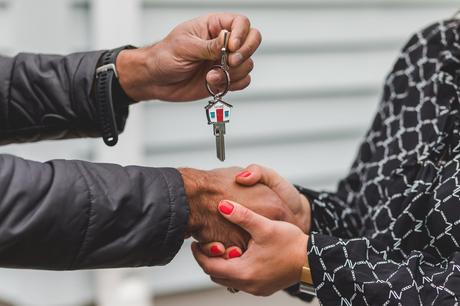
According to several studies, single women appear to have closed the gender gap when it comes to owning their own homes, despite their average lower wage income. Statistically, nearly twice as many single women are owning homes than single men.
Nowadays, there are several first-time-buyer schemes individuals can access to help them make their first steps on the property ladder. For instance, grants and forgivable loans, down payment assistance, and a whole host of first-time buyer loans are available in the US, which are bound to have had an impact upon the ease at which to buy.
In the UK, the First Homes Scheme was launched earlier this year, whereby first-time buyers can save up to 30 per cent when buying a new-build home. Similarly, the Help to Buy Scheme requires a deposit of at least five per cent of the purchase price, to borrow up to 20 per cent of the purchase price as an interest-free equity loan.
So, if these schemes are readily available to both men and women, why is it more single women own homes over men? In this article, we'll explore some of the studies that prove this statement, and discuss the possible reasons attributing to this disparity. Let's get started....
Studies That Prove More Single Women Own Homes Than Single Men
Up-to-date analysis from loan marketplace, LendingTree, found that single women own about 1.6 million more homes than their male counterparts. Single women own about 5.2 million homes, while single men own about 3.6 million homes.
Interestingly, in the US, Las Vegas has the smallest gap in homeownership rates among single women and men, while Boston has the largest. In the city of Tampa, nearly 132,500 owner-occupied households are owned by single women, making it the highest percentage of homes owned by single women.
But, while single women may own more homes than men, they still don't come out financially on top...
Stats That Show Women Are Still Financially Less Well Off Than Men
What makes the fact that single women are buying more houses than single men even more impressive, is the gender pay gap that continues to exist between men and women. In the US, women make, on average, 80 cents to a male employee's dollar, and in the UK, the gender pay gap among all employees remains at 15.5 per cent, as of 2020.
According to a study from Yale, single women are buying homes for an average of two percent more than their single male counterparts, and selling their homes for two per cent less. The study found that men have had greater returns on housing for the last 26 years, between 1991 and 2017.
So, why are single women continuing to buy homes at a faster pace than men, despite their lower salary and the known lack of monetary return?
What Factors Contribute to Single Women Owning More Homes Than Single Men?
Women Are More Likely to Keep the Family Home in Divorce Settlements
One factor that contributes to the fact more women own homes than single men is divorce. Statistically, during a divorce settlement, men are more likely to move out of the family home and lose their share in the house, whereas women tend to stay in the home and be the primary carers of the children.
Women Are More Likely to Start Up Their Own Businesses Than Men
According to the latest report from the Bureau of Labor Statistics, women outnumber men in the workforce, holding 50.04 per cent of jobs in the US as of December. In addition to this, women start businesses at two times the rate as men.
Women seem to not only be making marks in the housing market but appear to launch impactful and fast-growing businesses, ensuring their financial stability, and bridging the gap in gendered pay.

Women Take Less Monetary Risks Than Men
Often, women are more risk-averse than men and prefer to invest carefully. With house prices constantly on the rise, buying property is a notoriously safe investment and one that is bound to reap some reward. It is no surprise, therefore, that single women opt to buy property over other commodities.
Women Make Decisions and Shop Differently to Men
It's a well-known fact that men and women shop differently. In a 2005 study, partners and senior staff at Deloitte investigated the difference in consumer purchases between men and women. They found that typically, women are discovery-oriented shoppers, whereas men have a clear goal and are far more flippant in their decision-making.
Women are far more likely to readily adjust their goals and evaluate different options. Although this process might take significantly longer, it tends to end in a far more satisfying result. Is it then, that men are too impatient to find their dream home?

What Should My Next Steps Be?
If you're considering purchasing a new home, it's best to ensure you're financially stable enough to do so. House deposits in the UK and US vary, but typically you'll have to put down a 10 per cent deposit, at the very least. Buyers who put down a larger deposit often gain an advantage in multiple-offer situations.
Don't worry if you're struggling to meet the down payment amount. Remember what we discussed at the start of this article, and consider first-time-buyer incentives to give you a helping hand. It's always a good idea to talk to your bank and discuss your options with a US or UK conveyancing solicitor to ensure you're making the right move for you.
Best of luck!


